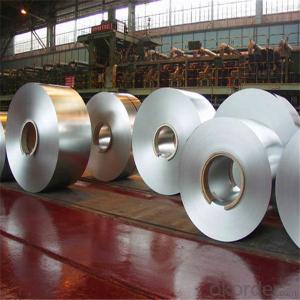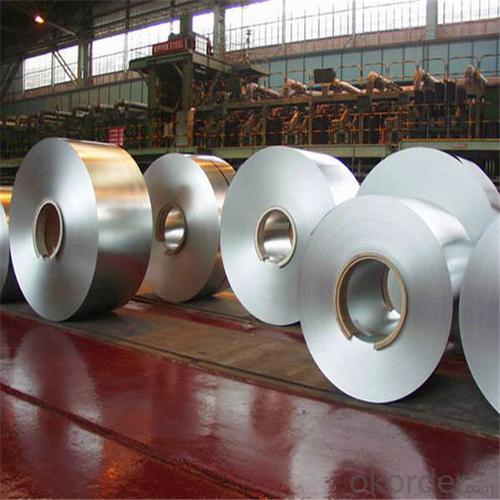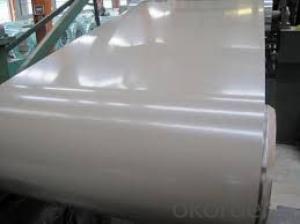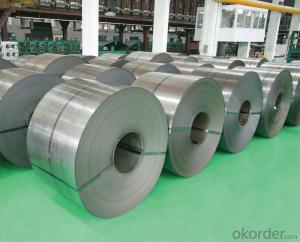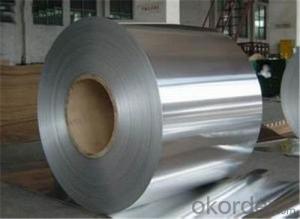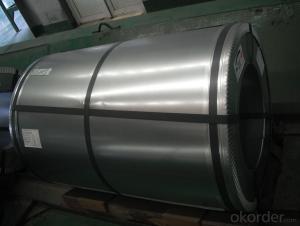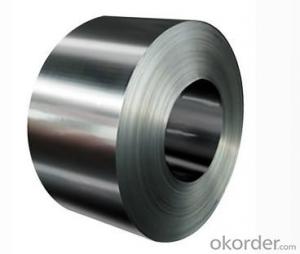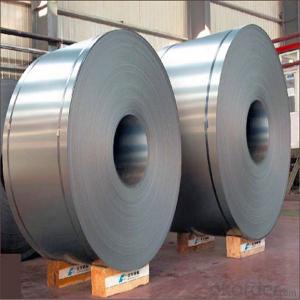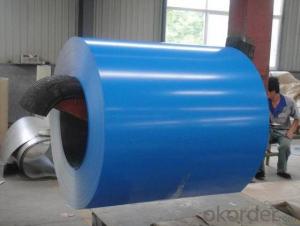Prime Cold Rolled Steel Coils with Low Price High Quality
- Loading Port:
- China main port
- Payment Terms:
- TT OR LC
- Min Order Qty:
- 12 m.t.
- Supply Capability:
- 50000 m.t./month
OKorder Service Pledge
OKorder Financial Service
You Might Also Like
Specification
Product Description
Stainless Steel Coil /Roll
1. Item: Stainless steel coil, Stainless Steel Roll
2. Material :201, 202, 304, 304L, 316, 316L, 309S, 310S, 317L, 321, 347, 347H , 409, 409L, 410, 420, 430, etc
3. Surface:2B,BA,HL,4K,6K,8K,NO.1,NO.2,NO.3,NO.4,NO.5 Black/Polished/Bright or as request
4. Standard: AISI, ASTM, EN, JIS, DIN, GB
5.Thickness: 0.3-3mm(cold rolled); 1.5-12mm(hot rolled)
Width: 1000mm,1219mm,1500mm or as request(cold rolled); 1000mm,1219mm,1500mm,1800mm,2000mm or as request(hot rolled)
6.Tolerance:thickness tolerance: +/-0.02mm,width tolerance: +/-10mm(cold-rolled);
thickness tolerance: +/-0.1mm,width tolerance: +/-10mm(hot-tolerance)
7. Shipment: Within 10-20 working days after receipt of the down payment or Irrevocable L/C sight.
8. Certificate: ISO, and third part inspection.
9. Application: (1) Construction, decoration (2) petroleum, chemical industry (3) electrical appliances, automotive, aerospace (4) house ware, kitchen appliances, cutlery, foodstuff (5) surgical instrument
10. Package: Bundles, seaworthy wooden pallets or wooden cases. With or without edge protector, steel hoop and seals, in 20' or 40' container or as per customers' requirements.
If you are really interested in our products, you can feel free to contact us directly.
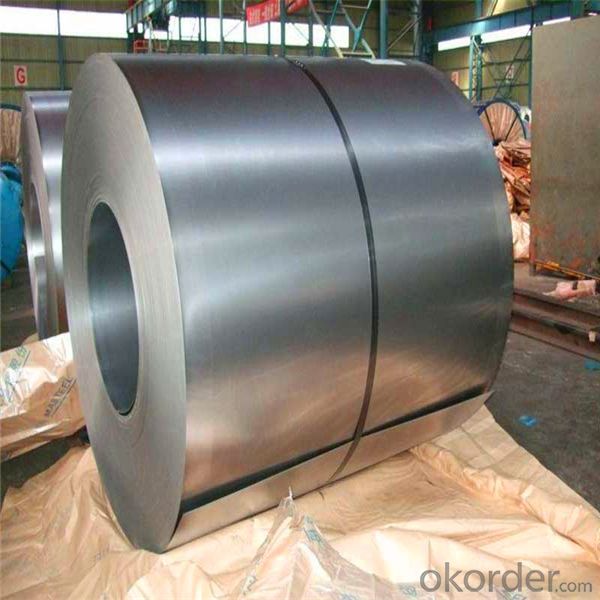
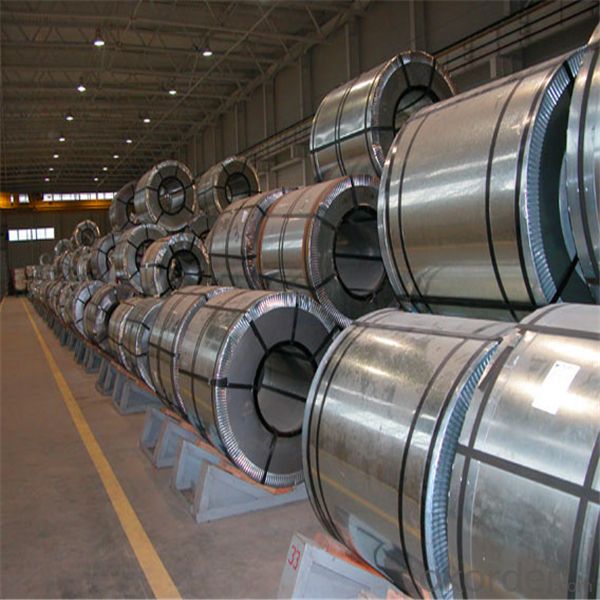
| Surface Finish | Definition | Application |
| 2B | Those finished, after cold rolling, by heat treatment, pickling or other equivalent treatment and lastly by cold rolling to given appropriate luster. | Medical equipment, Food industry, Construction material, Kitchen utensils. |
| BA | Those processed with bright heat treatment after cold rolling. | Kitchen utensils, Electric equipment, Building construction. |
| NO.3 | Those finished by polishing with No.100 to No.120 abrasives specified in JIS R6001. | Kitchen utensils, Building construction. |
| NO.4 | Those finished by polishing with No.150 to No.180 abrasives specified in JIS R6001. | Kitchen utensils, Building construction, Medical equipment. |
| HL | Those finished polishing so as to give continuous polishing streaks by using abrasive of suitable grain size. | Building Construction. |
| NO.1 | The surface finished by heat treatment and pickling or processes corresponding there to after hot rolling. | Chemical tank, pipe. |
- Q: What are the different types of steel coil finishing equipment?
- There are several different types of steel coil finishing equipment used in various industries. These equipment are designed to perform specific tasks to ensure the steel coils are prepared and finished according to the desired specifications. Some of the commonly used types of steel coil finishing equipment include: 1. Slitting lines: Slitting lines are used to cut large steel coils into narrower strips. These machines have multiple slitting knives that can cut through the coil at high speeds, resulting in precise and clean cuts. Slitting lines are typically used in industries such as automotive, construction, and packaging. 2. Leveling lines: Leveling lines are used to flatten and straighten steel coils that may have uneven surfaces or irregularities. These machines use a combination of leveling rolls and tension control systems to ensure that the steel coils are perfectly flat and have consistent thickness throughout. Leveling lines are commonly used in the manufacturing of appliances, furniture, and metal roofing. 3. Recoiling lines: Recoiling lines are used to rewind steel coils into smaller coils of a specific diameter and weight. These machines are equipped with winding units that carefully wind the steel strip around a mandrel, creating compact and evenly wound coils. Recoiling lines are typically used in industries such as electrical, HVAC, and steel distribution. 4. Cut-to-length lines: Cut-to-length lines are used to cut steel coils into specific lengths as per the customer's requirements. These machines have precision measuring systems that accurately measure the length of the coil and hydraulic shears that cut the coil accordingly. Cut-to-length lines are commonly used in industries such as manufacturing, construction, and fabrication. 5. Coating lines: Coating lines are used to apply protective coatings or finishes on steel coils to enhance their corrosion resistance, durability, and appearance. These lines typically consist of cleaning and pre-treatment sections, where the coils are cleaned and treated with chemicals, followed by coating application sections where the desired coating material is applied. Coating lines are commonly used in industries such as automotive, appliances, and construction. These are just a few examples of the different types of steel coil finishing equipment available in the market. Each type serves a specific purpose and plays a crucial role in the manufacturing and processing of steel coils for various applications.
- Q: What are the applications of steel coils?
- Steel coils are utilized across a wide array of industries due to their versatility and durability. The construction industry, in particular, heavily relies on steel coils for structural purposes. These coils can be shaped and molded into different sizes and forms to create essential components like beams, columns, and other structural elements needed in buildings, bridges, and infrastructure projects. Another significant field that benefits from steel coils is the automobile manufacturing industry. Steel coils are instrumental in producing various parts and components of vehicles, including body panels, chassis, frames, and engine parts. The exceptional strength and durability of steel make it an ideal material for ensuring the safety and longevity of automobiles. Moreover, steel coils play a crucial role in the production of household appliances such as refrigerators, washing machines, and stoves. Steel's versatility allows it to be easily molded and shaped into different configurations, making it suitable for various appliance components. In the energy sector, steel coils find extensive use in the manufacturing of power generation equipment and pipelines. Turbines, generators, and other equipment used in power plants are made from steel coils. Additionally, steel coils are employed in constructing pipelines for the transportation of oil, gas, and other fluids. Furthermore, steel coils are widely employed in the fabrication of storage tanks, industrial machinery, and agricultural equipment. They are also utilized in the production of furniture, shelving units, and various metal products. In summary, steel coils play a vital role in numerous industries, including construction, automotive, appliance manufacturing, energy, and others. The strength, durability, and versatility of steel make it an indispensable material for both structural and functional purposes.
- Q: What is the shelf life of a steel coil?
- The shelf life of a steel coil can vary depending on various factors such as the type of steel, storage conditions, and specific industry requirements. However, in general, if properly stored and protected from moisture, corrosion, and other damaging factors, a steel coil can have a shelf life of several years.
- Q: I have a new stainless steel trash compactor under a butcher block counter. We refinished the countertop, but unfortunately the person who did it wasn't careful with the orbital sander and sanded the top edge of the stainless steel compactor door, ruining the finish. The sander marks are not deep - just surface scratches - but they are unsightly. Is there any way to restore the finish to the stainless steel without having to buy a new door?
- This Site Might Help You. RE: How to refinish stainless steel appliance? I have a new stainless steel trash compactor under a butcher block counter. We refinished the countertop, but unfortunately the person who did it wasn't careful with the orbital sander and sanded the top edge of the stainless steel compactor door, ruining the finish. The sander marks are not...
- Q: How are steel coils inspected for impact resistance using impact testers?
- To assess the impact resistance of steel coils, specialized machines called impact testers are utilized. These machines are designed to evaluate the coils' ability to endure impacts. The process involves subjecting the coils to controlled impacts and measuring the resulting deformation or damage. Initially, the steel coils are securely positioned and oriented on the impact tester. This ensures accuracy and consistency. The tester is equipped with a striking element, like a pendulum or falling weight, which applies a specific force upon impact. The element is aligned precisely with the steel coil for precise testing. Once the setup is complete, the impact tester is activated, and the striking element is released to impact the steel coil. The force of the impact is carefully controlled and measured to ensure consistency across multiple tests. The tester records various parameters, including applied force and impact duration. After the impact, the steel coil undergoes a thorough examination for visible deformation or damage. This includes checking for dents, cracks, or any signs of structural compromise. The extent of the deformation or damage is recorded and compared to predetermined acceptance criteria to determine if the coil passes or fails the impact resistance test. To gather additional data during testing, impact testers can be equipped with various sensors and cameras. High-speed cameras capture the impact in slow motion, allowing for detailed analysis of the coil's behavior. Strain gauges can also be attached to the steel coil to measure strain and stress experienced during the impact. In conclusion, the use of impact testers offers a reliable and standardized method for inspecting the impact resistance of steel coils. By subjecting the coils to controlled impacts and accurately measuring deformation or damage, manufacturers can ensure that their steel coils meet the required impact resistance standards for different applications.
- Q: How are steel coils processed for heat treatment?
- Steel coils are typically processed for heat treatment by first being uncoiled and then cleaned to remove any dirt or scale. The coils are then heated to a specific temperature, which is determined based on the desired properties of the steel. This temperature is maintained for a specific period of time to allow for the desired transformation of the steel's microstructure. After the heat treatment process is complete, the coils are cooled either slowly or rapidly, depending on the desired properties. This allows the steel to be hardened or softened as required. Finally, the coils are recoiled and prepared for further processing or shipment.
- Q: How can the quality of steel coils be ensured?
- The quality of steel coils can be ensured through a combination of careful selection of raw materials, closely monitored manufacturing processes, and rigorous quality control measures. This includes conducting regular inspections and tests at various stages of production to ensure that the steel coils meet the required specifications and standards. Additionally, implementing proper storage and handling procedures, as well as adhering to industry best practices, can help maintain the quality of steel coils throughout their lifecycle.
- Q: How are steel coils protected from humidity?
- Steel coils are typically protected from humidity through a process called galvanization, where a layer of zinc or another protective coating is applied to the surface of the steel. This coating acts as a barrier, preventing moisture from coming into direct contact with the steel and minimizing the risk of corrosion. Additionally, steel coils are often stored in dry, enclosed spaces or wrapped with moisture-resistant materials such as plastic or wax paper to further protect them from humidity.
- Q: I'm looking for steel to make knives, but don't know what to get.
- If you are serious about making knives, I'd highly recommend visiting one of the many knifemaking forums. As usual they have good FAQs and could be good source of info, equipment and materials, let alone advices from fellow makers.
- Q: any one have an opinion? i've heard steel cut oatmeal is better for you...
- Steel cut oats have health benefits. They are delicious and very good for you! The difference between regular oatmeal and steel cut oatmeal: Steel-Cut Oats are whole grain groats (the inner portion of the oat kernel) which have been cut into two or three pieces using steel discs. Golden in colour and resembling mini rice particles, they are as nature intended - nothing added and nothing taken out. Rolled oats are flake oats that have been steamed, rolled, re-steamed and toasted. Due to all of this additional processing they have lost some of their natural taste, goodness and texture.
Send your message to us
Prime Cold Rolled Steel Coils with Low Price High Quality
- Loading Port:
- China main port
- Payment Terms:
- TT OR LC
- Min Order Qty:
- 12 m.t.
- Supply Capability:
- 50000 m.t./month
OKorder Service Pledge
OKorder Financial Service
Similar products
Hot products
Hot Searches
Related keywords
